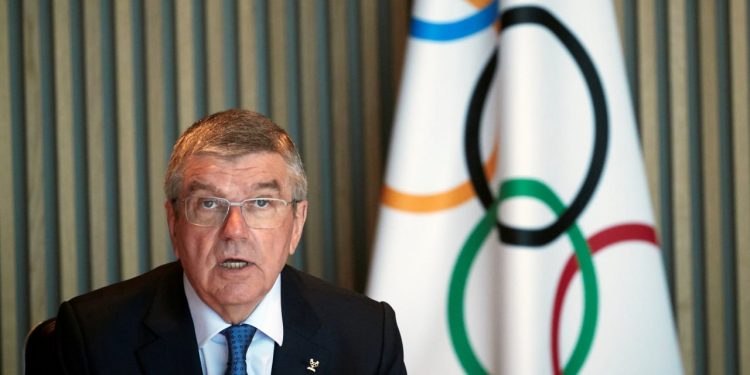Tokyo: China’s repression in Tibet, the status of the exiled Dalai Lama, and its treatment of ethnic minorities spurred violent protests ahead of Beijing’s 2008 Olympics. It could happen again. Beijing is to host the 2022 Winter Olympics with rumblings of a boycott. There also have been calls to move the Winter Olympics because of alleged human rights violations.
A coalition of human rights groups delivered Wednesday that demand to International Olympic Committee (IOC) President Thomas Bach. The move came ahead of the body’s executive board meeting in Switzerland.
In a letter, the group asked the IOC to ‘reverse its mistake in awarding Beijing the honour of hosting the Winter Olympic Games in 2022’. The letter said that the 2008 Olympics had failed to improve China’s human rights record. Since then, it has built ‘an Orwellian surveillance network’ in Tibet and incarcerated more than a million Uighurs, a mostly Muslim ethnic group, in the Xinjiang region. It listed a litany of other alleged abuses from Hong Kong to the Inner Mongolia region, as well as intimidation of Taiwan.
Chinese foreign ministry spokesperson Zhao Lijian accused the groups of trying to politicise sports, which he said is against the spirit of the Olympic Charter.
China has repeatedly denied human rights abuses. It at first said the camps for Uighurs didn’t exist. Then said they were job training centers to combat terrorism.
“Through vocational education and training, Xinjiang has taken preventive counter-terrorism and de-radicalization measures, effectively contained the once frequent terrorist activities, and protected the right to life, health and development of all ethnic group,” another spokesperson, Hua Chunying, said last week. “Over the past four years there hasn’t been a single terrorist attack in Xinjiang,” he added.
The IOC argued the 2008 Olympics would transform China and improve its human rights record. Instead, they are often compared to Hitler’s 1936 Berlin Olympics; an authoritarian state using the games as a stage.
A ‘Washington Post’ editorial this month suggested China should lose the Olympics. “The world must ask whether China, slowly strangling an entire people, has the moral standing to host the 2022 Winter Olympics,” it said. “We think not,” the editorial added.
These are precarious times for the Swiss-based IOC. Its finances — and those of 200 national Olympic committees and dozens of Olympic-related sports federations — have been shaken by the postponement of the Tokyo Olympics until 2021 because of COVID-19.
Bach warned two months ago against boycotts but said he was not referring specifically to Beijing. The Swiss-based body generates 73% of its revenue from selling television rights and 18% from sponsors and has seen its income stalled by the Tokyo delay.






































